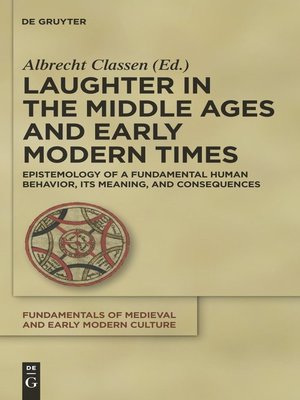Laughter in the Middle Ages and Early Modern Times
ebook ∣ Epistemology of a Fundamental Human Behavior, its Meaning, and Consequences · Fundamentals of Medieval and Early Modern Culture
By Albrecht Classen

Sign up to save your library
With an OverDrive account, you can save your favorite libraries for at-a-glance information about availability. Find out more about OverDrive accounts.
Find this title in Libby, the library reading app by OverDrive.



Search for a digital library with this title
Title found at these libraries:
| Library Name | Distance |
|---|---|
| Loading... |
Despite popular opinions of the 'dark Middle Ages' and a 'gloomy early modern age,' many people laughed, smiled, giggled, chuckled, entertained and ridiculed each other. This volume demonstrates how important laughter had been at times and how diverse the situations proved to be in which people laughed, and this from late antiquity to the eighteenth century. The contributions examine a wide gamut of significant cases of laughter in literary texts, historical documents, and art works where laughter determined the relationship among people. In fact, laughter emerges as a kaleidoscopic phenomenon reflecting divine joy, bitter hatred and contempt, satirical perspectives and parodic intentions. In some examples protagonists laughed out of sheer happiness and delight, in others because they felt anxiety and insecurity. It is much more difficult to detect premodern sculptures of laughing figures, but they also existed. Laughter reflected a variety of concerns, interests, and intentions, and the collective approach in this volume to laughter in the past opens many new windows to the history of mentality, social and religious conditions, gender relationships, and power structures.







